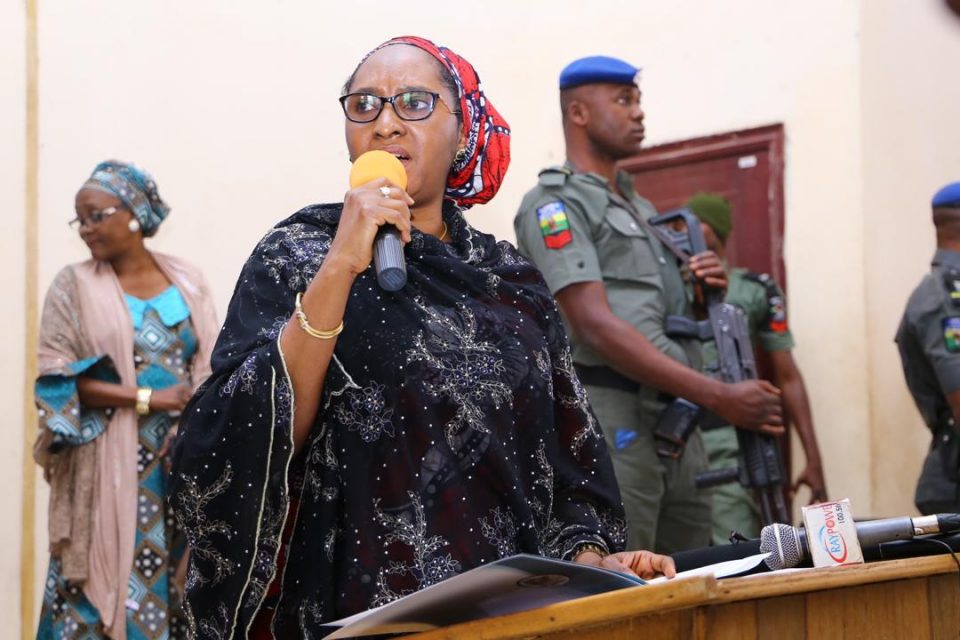
Fresh taxes Coming to bail 2019 budget
Arising from extreme revenue shortfall which has militated against the implementation of 2018 budget, the Federal Government of Nigeria plans to introduce new taxes as part of its efforts to boost revenue and appropriately fund the 2019 budget
Speaking to newsmen in Abuja, Finance Minister, Mrs. Zainab Ahmed, said that the current focus of the ministry is on revenue because government has resolved to mobilize more domestic revenue so that it can better fund the budget.
She stated: “As you can see from the performance (of 2018 budget) that there is a gap between what is in the budget and what is actually generated. So we are doing what we can and very soon we will be generating new revenue initiatives which will include a new set of taxes and excise duties but also working with FIRS and Customs to enhance measures for enforcement and also for compliance.
“By doing what we are doing, we might be having to go to the National Assembly to amend some laws that we have identified which have some gaps, some loopholes. We are doing everything we can to make sure our budgets are better funded, going forward, and it will start from 2019.”
The minister said “We will be generating new revenue initiatives which will include a new set of taxes and excise duties”.
Ahmed also said that capital releases for the implementation of the 2018 budget would hit the N1 trillion before the end of this year, adding that the N820 billion reported capital releases captured only those of the Ministries, Departments and Agencies (MDAs) and that the figure would go up if capital components of transfers to statutory organizations were captured.
“Let me say that the N820bn that has been released is just MDA capital because we have releases also that go to the statutory transfer agencies that is released to them in block and that amount includes both their personal recurrent as well as capital.
“There are also capital releases that are done as part of the capital supplementation; that is to say, it’s service-wide that is not in the N820bn. The N820bn is 43 per cent of MDA capital. “We are working to push this to N1.1tn by the end of December, Insha Allah and that would be including the statutory transfers, the service wide (votes), as well as, the rest of the MDAs whose capital we are currently processing.”
Mrs. Ahmed also spoke on question raised on the depletion of the Excess Crude Account, stressing that approval to draw down was given by the National Economic Council, a platform for consensus building between the federal and state governments on economic issues.
“The Excess Crude Account was refunded yesterday. We had sent another N50bn savings into the Excess Crude Account. If you recall, the NEC had authorized the use of $1bn from the Excess Crude Account for security, so the performance of that instruction is what has produced what we have in the Excess Crude Account.
“So it’s been largely depleted but we are still saving to it and this is the third month that we have been saving consistently into the Excess Crude Account.” 2018 budget’ll run till next June.

Minister of Budget & National Planning, Senator Udoma Udo Udoma, who spoke earlier at the occasion said that the 2018 budget would run until June next year. He said that urgent steps are being taken to raise funds from Joint Venture Oil assets restructuring to finance the 2019 budget.
“Mr. President has directed that immediate action be commenced to restructure the Joint Venture Oil Assets so as to reduce government shareholding to 40 percent and that this exercise must be completed within the 2019 fiscal year”, he said.
He added that the Department of Petroleum Resources, DPR, has been mandated to complete the collection of past-due oil license and royalty charges, within three months adding that that the Ministry of Finance, working with all the relevant authorities, has been mandated to take action to liquidate all recovered, unencumbered assets within six months.
Said Udoma: “Given the improved oil prices and production levels, Nigerian National Petroleum Corporation (NNPC) is to immediately commence the recovery of all outstanding obligations, including those due from Nigerian Petroleum Development Company.
“Finally, amongst other revenue generating initiatives, Mr. President has directed that work should be immediately concluded on the deployment of the National Trade Window and other technologies to enhance Customs collections efficiency from the current 64 per cent to up to 90 percent over the next few years,” he said. Why oil benchmark was left at $60 pbl.
Explaining why the Federal Government left the oil price benchmark at $60 per barrel, Udoma said “Notwithstanding the recent softening in international oil prices, the considered view of most reputable oil industry analysts is that the downward trend in recent months is not necessarily reflective of the outlook for 2019.
“However, we will closely monitor the situation and will respond to any changes in the international oil price outlook for 2019”, he said.
